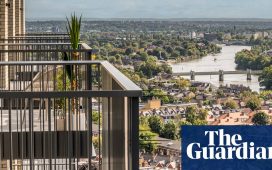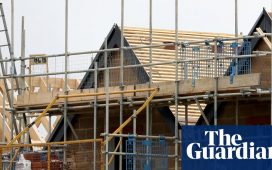Stay informed with free updates
Simply sign up to the Travel & leisure industry myFT Digest — delivered directly to your inbox.
Dealmaking in the UK hotel sector in the first half of the year was at its highest volume in almost a decade, driven by interest from US private equity firms, according to research by Savills.
The value of deals in the sector reached an estimated £3.08bn in the six months to June, an increase of 35 per cent compared with the whole of 2023, the real estate group said.
It is the highest volume since the same six-month period in 2015, when volumes totalled £3.61bn, and 5 per cent above the pre-pandemic five-year average of the first half-year.
“The increase in volumes marks a turning point for hotel activity and investor confidence,” said Tim Stoyle, head of UK hotels at Savills.
Robert Stapleton, Savills’ head of UK hotel capital markets, said along with “reasonable confidence in investors”, there had also been “pressure to deploy capital and expectations of interest rate cuts”.
He expects the volume of deals to exceed £5bn this year even though interest rates are unlikely to return to where they were three years ago. “Assets that remain well invested and operationally efficient will continue to do well.”
Private equity groups, under pressure to use capital raised soon after the pandemic, are driving dealmaking.
Blackstone last month acquired Village Hotels, which operates in more than 30 locations, from KSL Capital Partners for a deal believed to be worth about £780mn. In January, Starwood Capital acquired a portfolio of 10 hotels from Edwardian Hotels for a reported £800mn.
Hotel transactions involving multiple assets accounted for two-thirds of the latest half-year total volume, Stapleton said, as big deals had been attracting more interest from private equity investors seeking to “get money out the door”.
M&A in the UK hotel industry over the past two years had been dominated by small deals, amid the economic headwind of interest rate increases.
However, hotels have emerged as one of the few bright spots in the commercial real estate market, along with residential properties and data centres, largely because of their ability to combat rising costs with increasing room rates. Pent-up travel demand has also made hoteliers confident enough to significantly increase prices for customers.
These smaller property sectors have attracted investors and dealmaking activity, while offices and retail — two of the traditional mainstays in commercial real estate portfolios — have had much less interest.
One senior executive of a hotel asset management company said the ability of hoteliers to raise room rates had “given a false sense of the true value of their assets” and resulted in an unwillingness among sellers to exit at a discount. Buyers, meanwhile, have been unwilling to buy at overinflated prices.
But increasing operational costs, from energy to food prices, have kept hoteliers under pressure. Labour costs are higher following the almost 10 per cent increase in the National Living Wage in April.
RSM UK said last month that labour costs per available room were up from £15.32 in March to £16.62 in April — or £20.65 to £22.16 in London — due to this change, hitting the bottom line of UK hotels.











